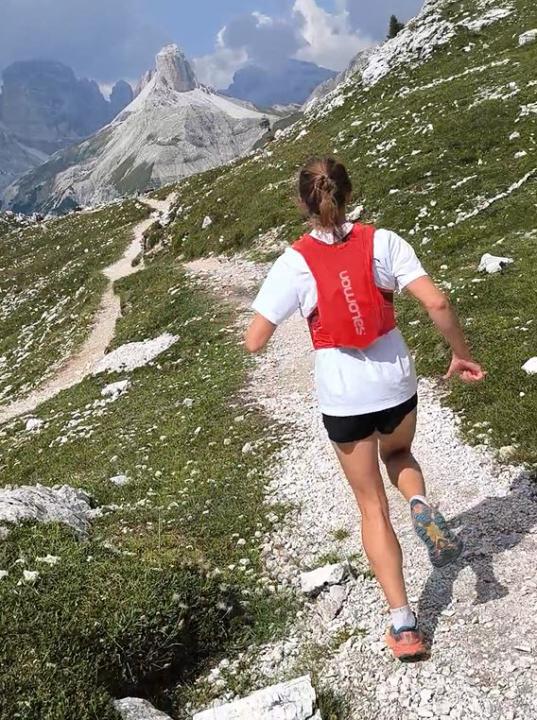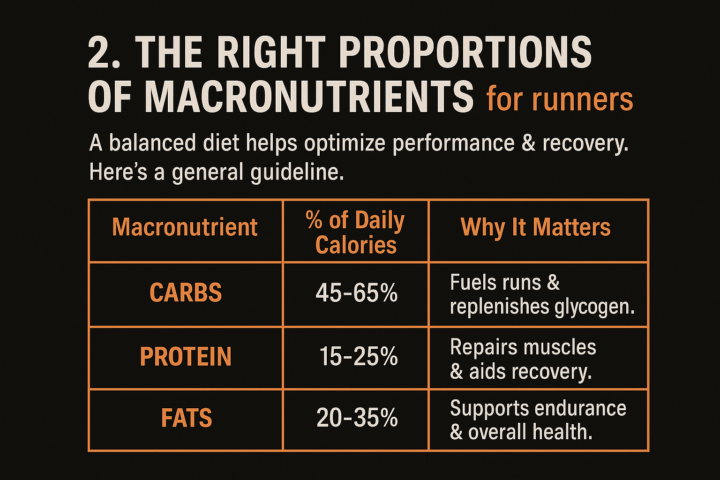Activity
Mon
Wed
Fri
Sun
Jan
Feb
Mar
Apr
May
Jun
Jul
Aug
Sep
Oct
Nov
Dec
What is this?
Less
More
Owned by Ariadna
Welcome to Better Runner ! This is where runners of all levels achieve their goals.
Memberships
NeveReady Run Club
537 members • Free
Fucketlist Life
5.5k members • Free
Sleep Athletes
181 members • Free
Love Unbound
9 members • Free
Afford Free Time
1k members • Free
THP Jump Training
79.8k members • Free
The Stronger Human
24.6k members • Free
The MOVEment
103 members • Free
Swift Running
439 members • $400/m
68 contributions to Better Runner
NEWS - This group will be archived 🔑
I've decided to take a break because I want to rethink the model for running this project. I also want to take a break from social media and focus more on my personal life goals and goals for the running season. Hopefully I'll be back in a while with more insight and experience, and this community will continue to grow! 💫 If you have any questions or are looking for a running / fitness coach, below is a post about running coaching - DM me for a consultation. 🙂
🏃♂️ Personalized Running Coaching –Summer season is close☀️
Have you been running for a while but not seeing significant changes? Do you want to take a conscious approach to running and perform at your BEST? I'm a certified running coach and an active athlete - my job is to help people run injury free, improve performance systematically and integrate training into your schedule. Spring is the time to start training for summer and autumn races🤩 I am looking for 6 people that I am willing to coach. ✅ What You Get: - Custom Training Plan – for road or trail running:🟢 3K, 5K, 10K, Half Marathon (21K), Marathon (42K), and Trail running distances - Trail-Specific Expertise – I have 3+ years of performance and experience in technical terrain - Structured Weekly Training – including intervals, progressive runs, easy days, and uphill workouts - Strength Training – to build durable biomechanics and prevent injury - Ongoing DAILY support & feedback – including health monitoring, mental performance, and nutrition guidance Extra: - Fitness tests with analytics - Nutritional plans 🧠 My Coaching Philosophy: - I work with beginners and experienced runners alike. - This isn’t a rigid plan from an app or AI. Real coaching means flexibility, adaptation, and daily support in a complex training process like running - Holistic and thoughtful approach that supports long-term growth, health, and performance - Health is a priority for best performance of your life - Eating is same important as training Here is my best students results from last year : Herman: 5k - 18m58s 10k -39m40s 42k - 3h 17m (currently training for 100k sub 6m/km pace) Eduard: 3k - 10m 51s 5k - 18m 58s 10k - 38m58s ( training for 5-10k ) Valery: 5k -18m 15s ( first season, training for sub 37m 10 k) My PB 5k -18m 30s 10k - 37m 44s 21k- 1h32m + best UTMB & ITRA score in Estonia (trail running international score) DM me if you want to become better runner this year !😄
5
0

Day 2 : Macronutrients Balance 🥭🥑🍗
What Are Macronutrients?🧬 Macronutrients are the three main nutrients your body needs in large amounts: Carbs, Protein & Fats They help 'build' the foundation for the body's basic functions and are a source of energy. In order to protect yourself and your body, it is important to maintain a balanced diet, taking into account the daily dose of nutrients. ✅ Proteins - They have been described as the body's main 'building material', but this is by no means their only function. Hormones and enzymes made from proteins regulate metabolic processes. The dermis is made up of collagen, keratin and elastin proteins. Skeletal muscles move the body, and smooth muscles of the internal organs are responsible for peristalsis and regulating the lumen of blood vessels. Immune cells fight bacteria and viruses, and blood components transport nutrients around the body. All these functions are carried out by protein structures. ✅ Carbohydrates - The main source of energy. Complex carbohydrates (polysaccharides) are broken down by enzymes and converted into glucose. The oxidation of glucose provides energy for all life processes. Polysaccharides create an energy reserve in the body - in humans called glycogen. Complex carbohydrates, which are not digested, help the gut to function properly and 'feed' the beneficial microflora in it - these are fibre. ✅ Fats - They are necessary for the production of hormones, the assimilation of fat-soluble vitamins, the maintenance of elasticity of vessel walls and intercellular membranes.Fats form a cushion of fat between internal organs, protecting them from shock and displacement. The balance of Proteins , Carbs and Fats can be calculated in grams per kilogram of body weight or as a percentage of the required calories in the daily diet. 📊Daily norms of macronutrients per 1 kg of weight:📊 1.5-2 g protein 0.8-1.5 g of fat And carbs should be calculated according to energy consumption Me: weight 59 kg 118 g of protein (took 2 g because I train alot)

Question of the week
I'm starting a new column. Every week I will ask questions and you will try to answer and hypothesize. In this way we will develop critical thinking and talk about lean issues 🤔🤓 And you can do it too! 💬 ( Just make a post) So, today's question: We’re not the fastest, strongest, or fiercest species… but humans have one physical advantage no other animal on Earth can compete with us. What is it?

Day 4 : Сarbohydrates
Carbs often get a bad rap, but for active individuals like us, they’re a key fuel source! Let’s break down the truth about carbohydrates—how to use them wisely, why they matter, and how to avoid common pitfalls. The truth is that it's the amount of carbohydrates we eat that regulates our hunger. Not satiety, but hunger. Our bodies are smart and give us the right signals. So if we feel hungry, have headaches, are foggy, cranky, cold and think about food all the time, there is a good chance that we have too few carbohydrates in our diet. This is a common mistake made by those who plan their diets to achieve a calorie deficit. Sometimes that happens just because we underestimate our energy needs (common within people going to the gym or doing endurance sports) 😱 But What If I’m Gaining Weight? Let’s bust a myth: Carbs don’t make you fat. Overeating anything chronically does—but in endurance sports, under-fueling is far more common and dangerous than over-fueling. ⛔Don’t Fear Carbs!⛔ Carbs = primary fuel for endurance and high-intensity training. Also for muscle building foundation (they help protein synthesis) Cutting them too low can lead to: - Low energy & poor recovery - Increased hunger (thanks to hormone imbalances) - Slower metabolism over time (a lot of people are already in that trap ) Signs Your Carb Intake Is Too Low 🚩 Constant fatigue, poor workout performance 🚩 Insatiable hunger & cravings (especially for sugar) 🚩 Mood swings, poor sleep, feeling cold often In fact, many people lose weight more easily when they include carbs smartly, because: - You have better energy to move and train - Your hormones stay in balance - You avoid binge-eating from restriction 🔥 How Many Carbs Do Runners Need? Your carb intake should scale with training volume and intensity. Here’s how to calculate it: General Guidelines (per day) - Sedentary/Low Activity: 2–3g per kg of body weight - Moderate Exercise (30–60 min/day): 4–5g per kg - Endurance Training (1–2 hrs/day): 5–7g per kg - High-Volume/Intense (2+ hrs/day or racing): 7–10g per kg

1-10 of 68
@ariadna-golubenko-8451
Running coach
SKY-runner. 1 UTMB fem. index in Estonia
Active 138d ago
Joined Jan 3, 2025
Tenerife
Powered by

